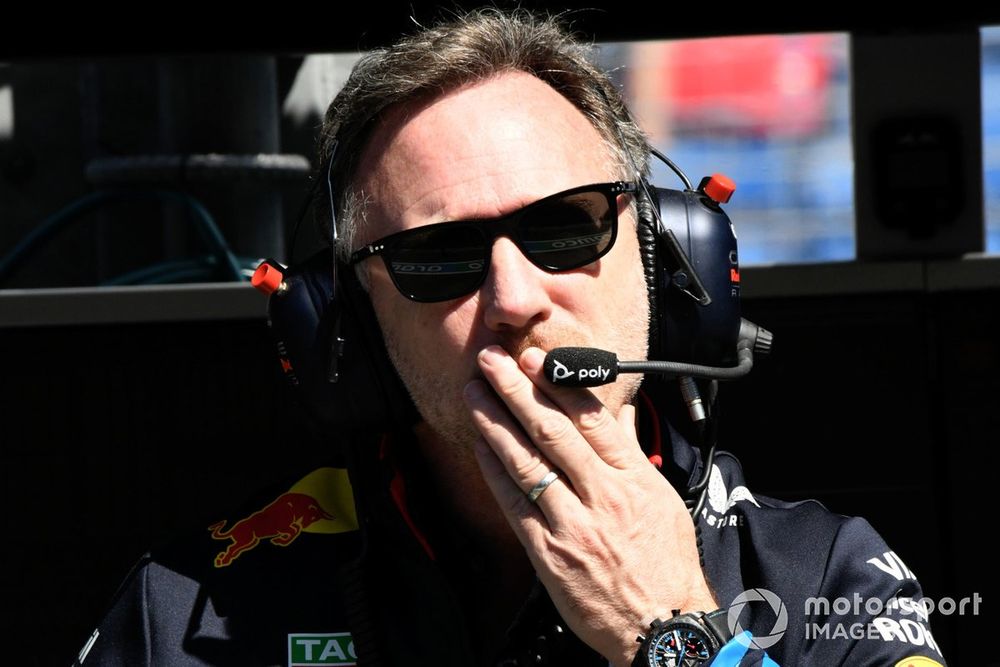Amid F1’s ongoing preparations for new engine and chassis rules from 2026, there have been some early concerns from teams about the regulations delivering unintended consequences.
There were worries about drivers needing to change down gears on the straights to help charge batteries, while recent findings from simulators about cars spinning out easily with active aero engaged triggered some alarm even though these tests were aimed at proving things that would not work.
Last year, Horner had warned about there being a danger of the chassis regs producing “Frankenstein cars” that were not as good as they should be, simply because they had to cover up for energy shortfalls triggered by the new power units.
But as a final push is now underway to frame the chassis regulations before the end of June, Horner thinks that F1 and the FIA are in a much better shape to make the right decisions needed.
“Obviously it’s a massive change for 2026 and slightly unprecedented to be changing both chassis and engine at the same time,” said Horner.
“Of course, there are unknown factors in that, but there’s been a lot of work done by the FIA. They’ve been collaborating with the teams.
“We’ve been quite vocal, even a year or two ago, about some of the issues, which have been listened to and have been taken on board. So, there’s been solid progress, I would say, that’s been made.
“It’s a clean sheet of paper, a completely clean sheet of paper, with all aspects of the formula, so it’s going to be fascinating to see how the engineers interpret the various regulations and 2026 could look quite different.”
Christian Horner, Team Principal, Red Bull Racing
Photo by: John Toscano / Motorsport Images
McLaren team principal Andrea Stella felt it was critical for F1 to ensure that the new regulations did not lead to any unintended consequence that could hurt either the competitiveness of the field or the spectacle.
“We are happy that the level of collaboration is intense among the teams and with the FIA,” he said.
“I think when you explore new regulations, it’s normal that you have some ideas, and that you may have prove-outs, that you may want to validate properly. I think so far, we are happy.
“It’s important, as we have said before, that we nail the regulations so that we avoid unintended implications, like to some extent we might have had with this generation of cars.
“We didn’t call them problems, we called them challenges. But, for instance,…
Click Here to Read the Full Original Article at Autosport.com – Formula 1 – Stories…

